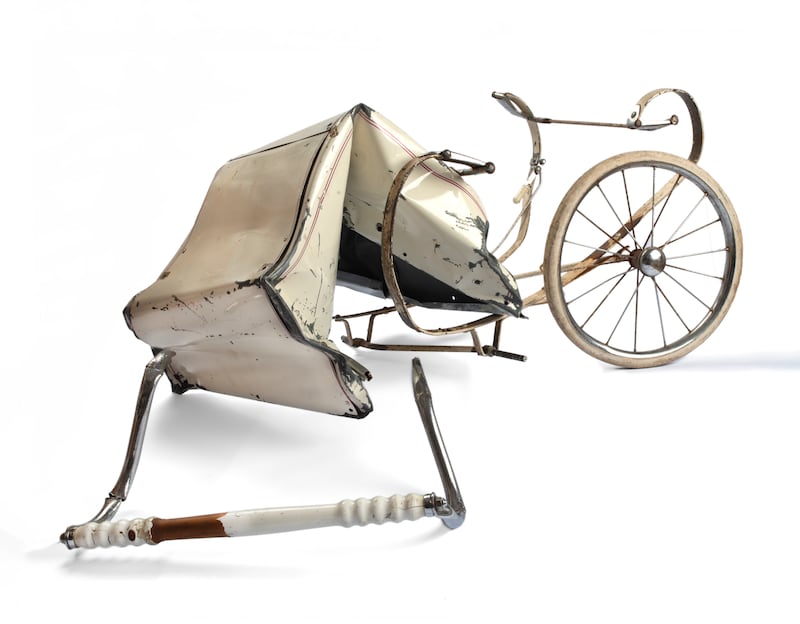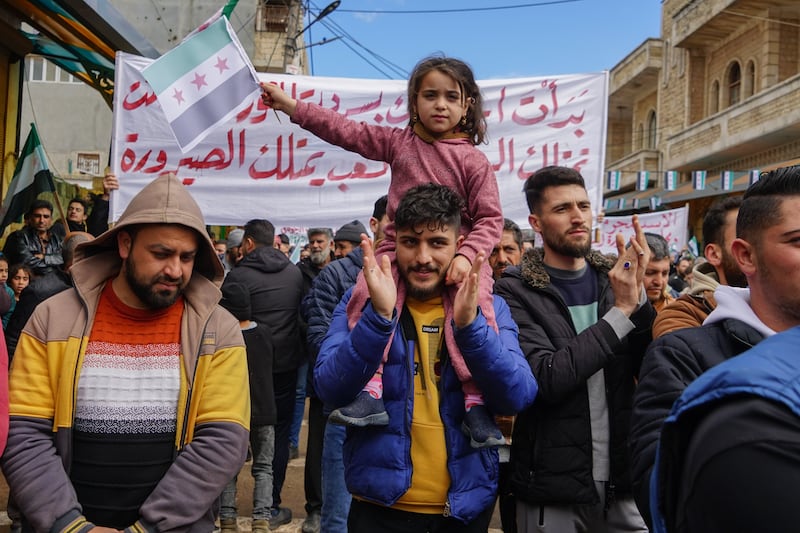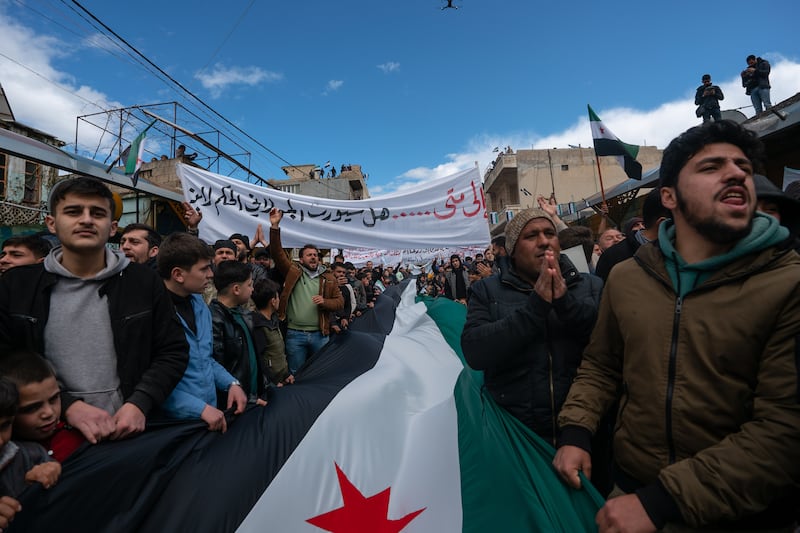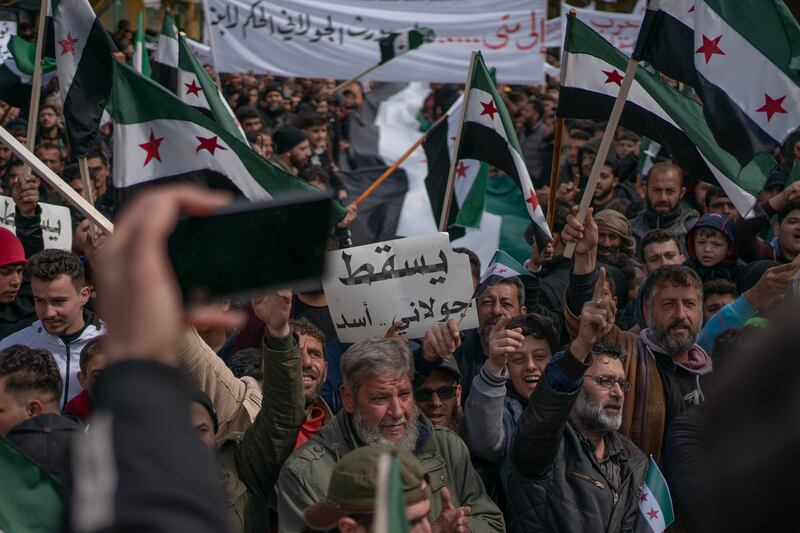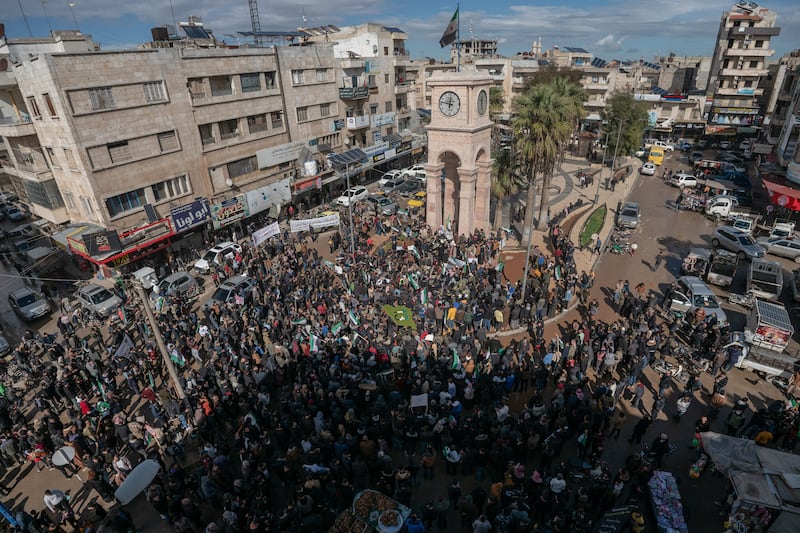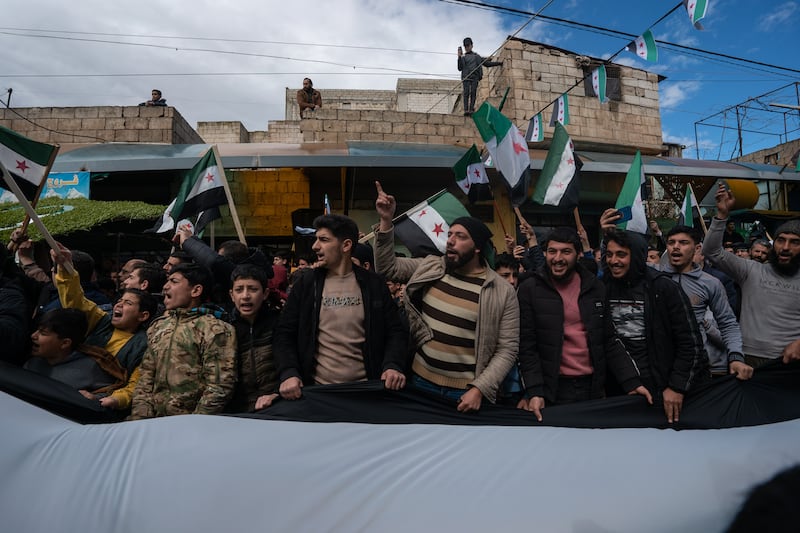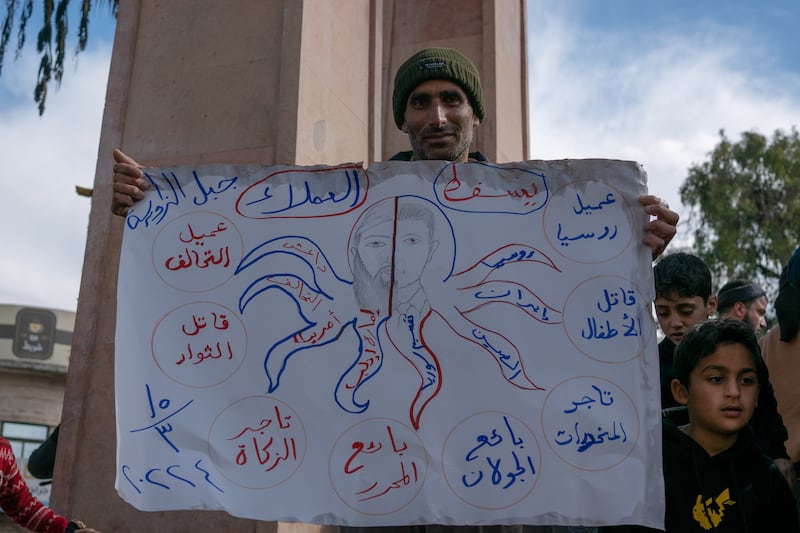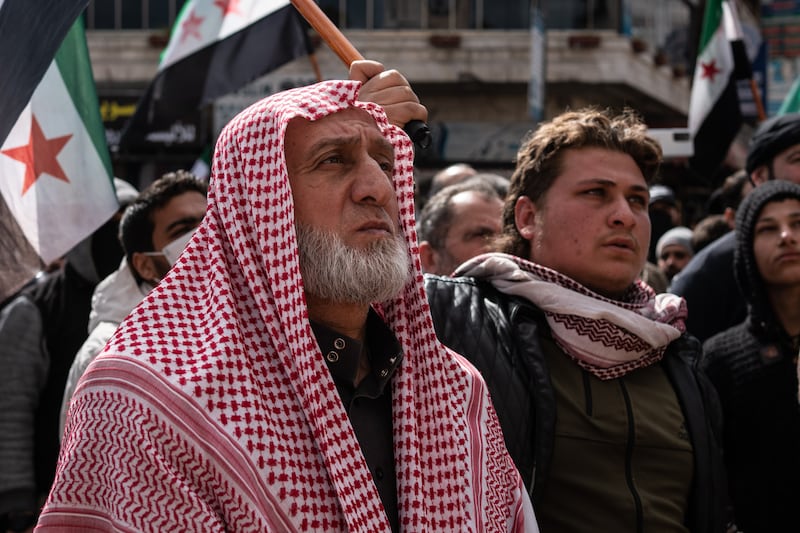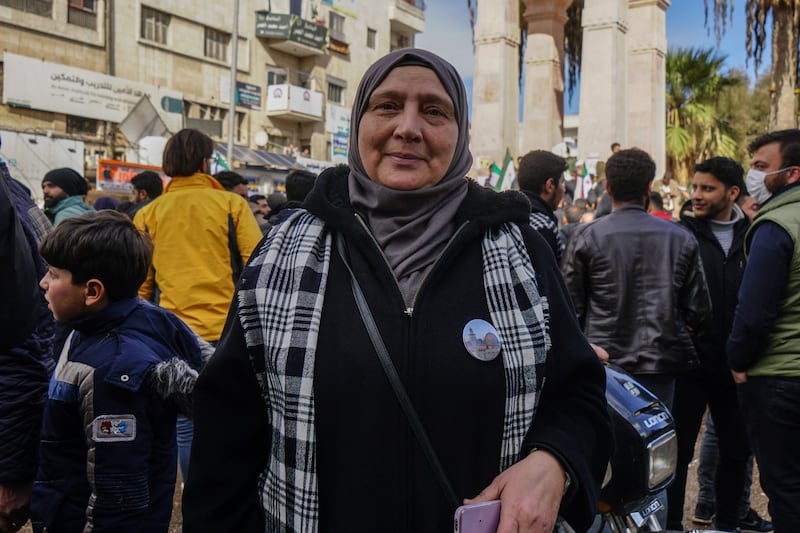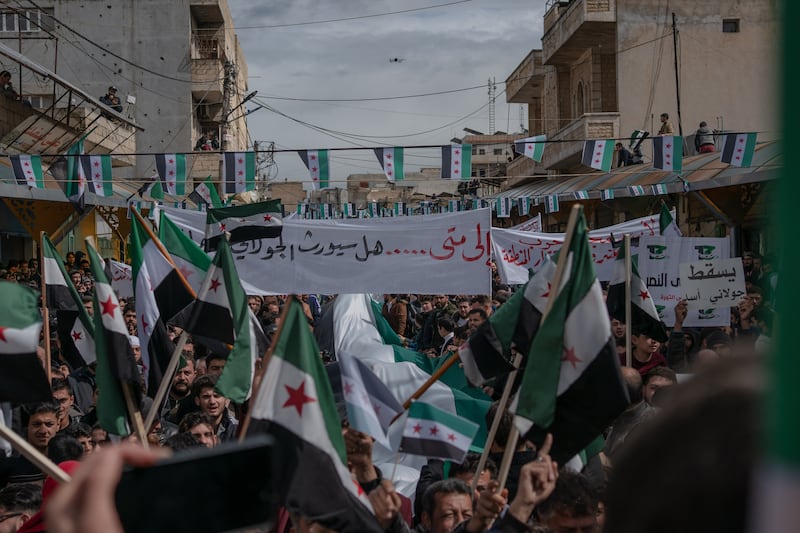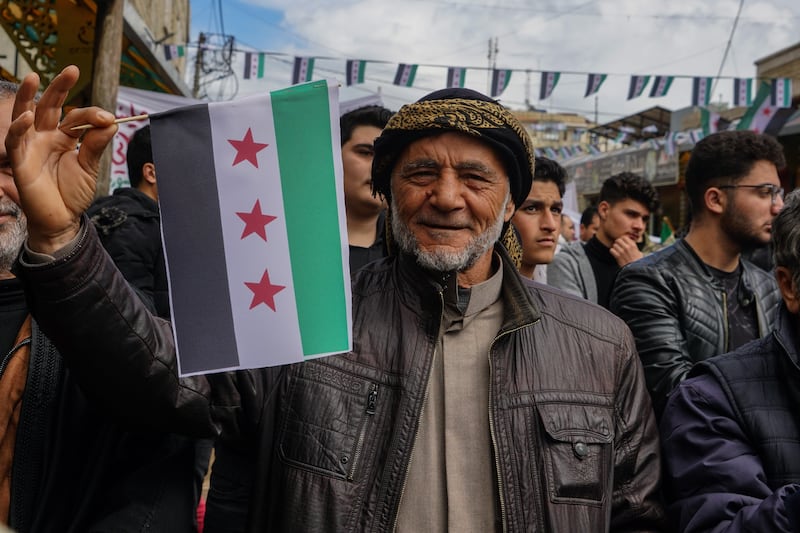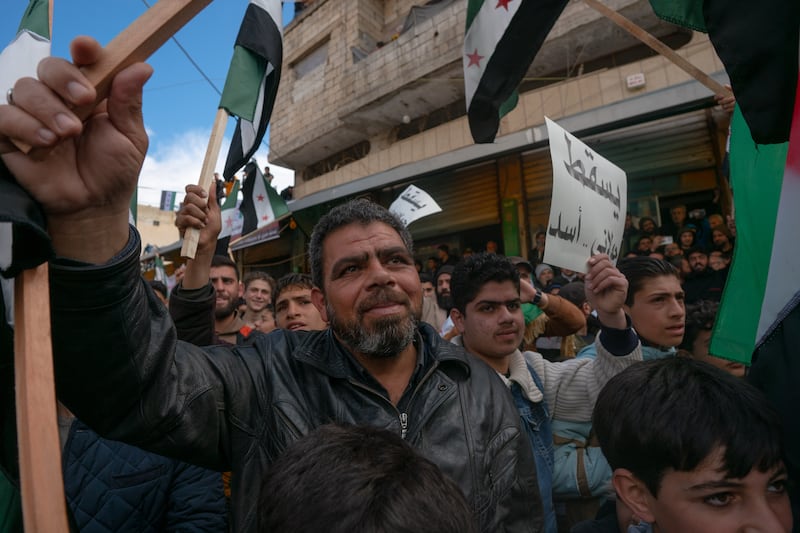Art galleries tend to be subdued, reverential sites. But Syrian artist Issam Kourbaj's exhibition at Kettle’s Yard, an independent art space in Cambridge, has the low buzz of a theatre foyer – a thrum of hushed conversations lanced by the occasional warm greeting or exultant reaction.
Kourbaj, whose exhibition Urgent Archive is now on show, is responsible for a good portion of this activity. He is regularly in the gallery himself, adding to artworks and fulfilling daily tasks that he has set himself in the space.
For the work Killed, Detained and Missing (Women) (2019), Kourbaj has written the names of the thousands of Syrian women who have disappeared or been killed on to two old pianola scrolls.
Every time he visits the gallery he pulls down the paper a few more inches, to emphasise the number of victims he has had to inscribe. He writes their names in indigo ink on the exterior windows of the space, and will eventually cover the full gallery windows.
In another room, for the work Thought of the Day, he stamps a calendar for each day – a ritual that started with his father, who would struggle to read his calendar's thought of the day each morning. At Kettle’s Yard, he tears off a page, stamps it, and returns the pad to its place.
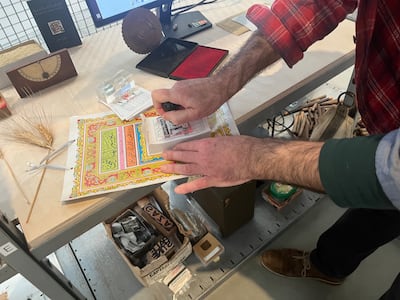
“I needed to make something ongoing to reflect the ongoing violence,” he says. “So I make that statement by coming here and reflecting on what's happening.”
But another chunk of the activity in the gallery is people reaching out to Kourbaj as he carries out these tasks. As he gives The National a tour of the show, a couple turn round to thank him for it, and ask if they could shake his hand.
One woman politely asks if she may listen in as he speaks. A man in a tweed jacket stands up to offer his congratulations. It's an exhibition that has touched a nerve.
Kourbaj has lived in Cambridge since 1989, when he moved to the UK from what was then the Soviet Union. He had been studying art on a Soviet government scholarship.
He has long worked as a painter and sculptor but since 2011 has focused exclusively on the conflict in Syria, and the exhibition here comprises the breadth of that crisis, from the destruction of the civil war to the dangers faced by migrants to the ongoing food insecurity.
He has added one poignant work that departs from his home country: the installation All But Milk (2023–24). In it, shelves of baby bottles that are filled with shards of glass, rocks, sand – anything but milk, that is – in Gaza. There is extra space on the shelves and Kourbaj will continue to populate the work as the exhibition, and the conflict in Gaza, goes on.
Nearby, a mangled baby carriage lies in a corner: Kourbaj made the sculpture, Capsized, in 2020 in memory of three-year-old Alan Kurdi, who died with other Syrian refugees while crossing the Mediterranean.
“What is happening around the world is not an easy thing,” he says. “Therefore, I could not flatten things.”
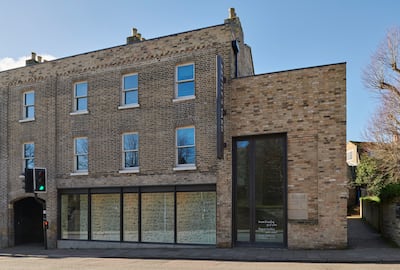
The show is overwhelming not simply because of the subject matter. It is also due to the art's live, provisional quality.
He has organised one of the main rooms as if it were his studio, with industrial metal shelving that holds past and ongoing work – making it appear more like personal storage space than an exhibition. A computer monitor displays the protests in Kourbaj’s hometown of As-Suwayda that have, rather remarkably in Bashar al-Assad's Syria, been going on for seven months.
On an upper shelf a video monitor shows Kourbaj dragging the metal frame of a mattress on to a beach, in reference to the migrants who came ashore in the Mediterranean. (The video was filmed, Kourbaj tells me proudly, by his son, who is now at the Glasgow School of Art.)
Similar mattresses are installed in a nearby gallery, hanging from the ceiling with metal springs scattered around them, where they achieve an almost menacing quality – the kind of scrap metal you might warn your children away from touching. Kourbaj explains that the springs on the floor allude to the failure of the Arab uprisings, whose promises likewise lie scattered.
It is a typical pun from Kourbaj. He is a terrific fan of word play, which adds to the multiple meanings contained by each work. His video of dragging the mattresses from the sea is entitled Shores of Power, a reference to Europe's political and economic power – as well as to the nuclear power station that sits ominously on the shoreline where he and his son made the work.
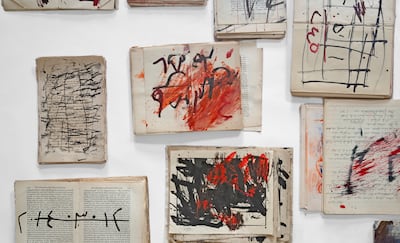
Words are playful but they are also powerful, functioning as testimonial witness. Urgent Archives: Written in Blood (2019) is a floor piece inspired by the Syrian human rights journalist Mansour Omari, who sought to record the names of his fellow political prisoners.
Omari had neither paper nor pen, so used his own blood to write down the names. Kourbaj has paid homage to this act of bravery by inscribing the prisoners’ names in red ink.
The leitmotif of this exhibition is ostensibly the wheat seed. Kourbaj has planted wheat seeds from Syria in rows outside the gallery, and is in talks with Kew Gardens, in London, to grow Syrian wheat there. Wheat offers a stand-in for the idea of displaced Syrians who are now taking root in cities beyond their home country.
But Kourbaj cannot just leave the comparison there. He pushes and plays with the wheat seeds, seeing how much more he can get out of them. Three large-scale photographs show them burnt, their soft porcelain colours charred to a crisp – Kourbaj explains that the word for wheat in Arabic, “hinta”, is likewise the word for skin, as if the bodies themselves were being burnt alive.
What is the nerve that Kourbaj’s exhibition has touched? It’s an expression but also an apt metaphor: Kourbaj’s work, messy and frenetic, is rooted in the vulnerability of the body and the miraculousness of its survival.
There is no adequate response to the violence in Syria, Gaza, Sudan, Haiti and elsewhere – but this is a show that refuses to look away.
Issam Kourbaj: Urgent Archive at Kettle’s Yard, runs in Cambridge, UK from March 2 to May 26.
